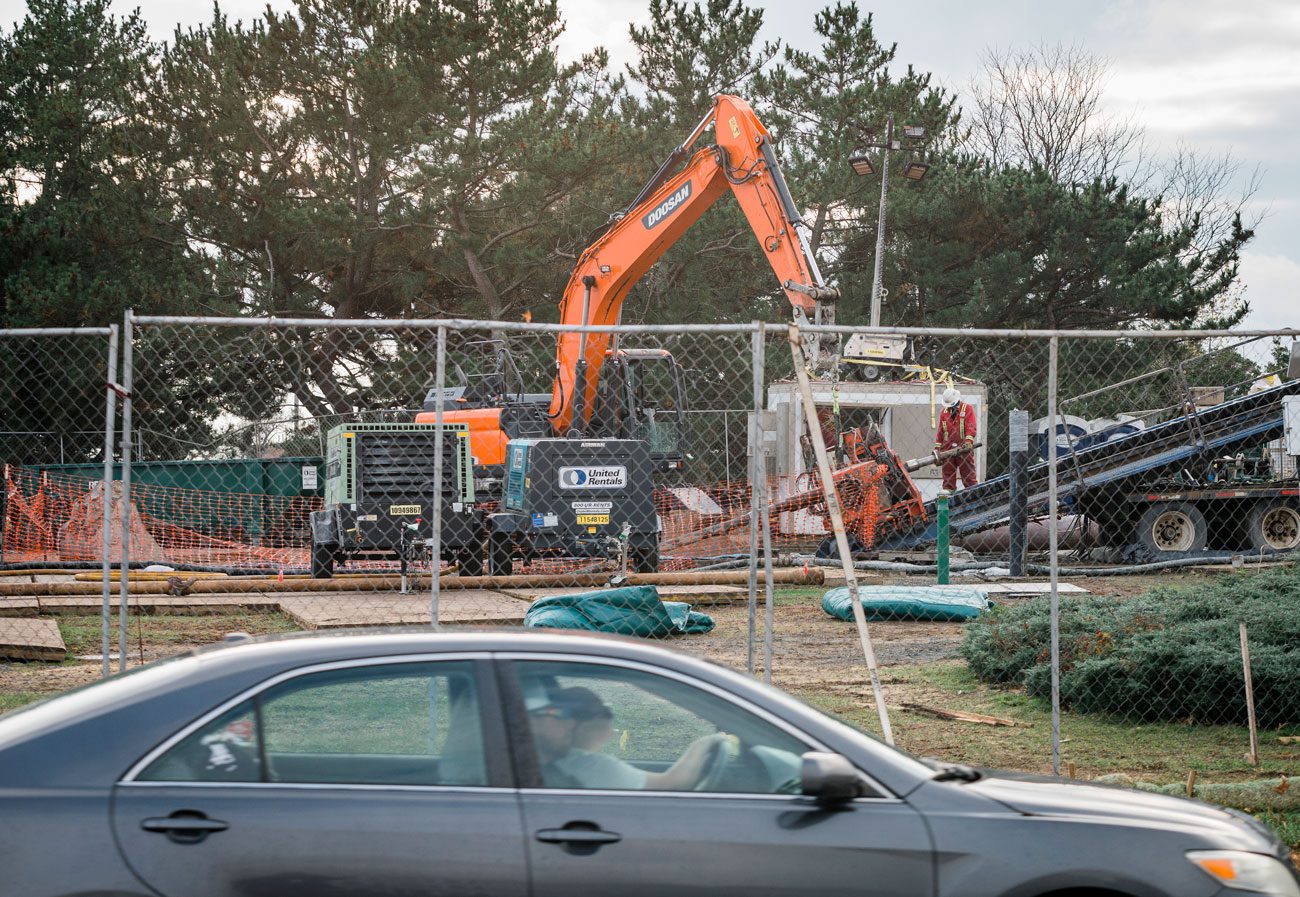LYNN — Those who traverse the rotary connecting Lynn to Nahant might have noticed traffic delays in recent weeks, as a portion of the rotary remained blocked off for work on a trans-Atlantic cable connecting North America and Europe.
The Amitié Cable Project, owned primarily by a consortium made up of tech companies like Facebook, Microsoft, Aqua Comms, and Vodafone, connects the Lynn Cable Landing Station at 91 Commercial St. to landing stations in Le Porge, France and Buke, UK through a 214 mile-long underwater fiber optic cable.
In Massachusetts, the cable route crosses the waters of Rockport, Gloucester, Manchester-by-the-Sea, Beverly, Salem, Marblehead, Swampscott, and Lynn.
Facebook, through its subsidiary Edge USA, holds majority ownership of the Amitié cable system, which aims to strengthen telecommunication services, data transmission speed, and internet services between the two continents. Facebook contracts with GTT (Hibernia Atlantic), the owner of the Lynn Cable Landing Station, to oversee landing operations.
With the project slated for completion in the spring, city officials said that the tech company consortium, primarily funded by Facebook, owes the City of Lynn around $2.75 million in personal property tax payments and fees.
Chief Financial Officer Michael Bertino said that the cable landing operation has been sporadically negligent in their tax payments since 2001, when an earlier cable project began.
“There is delinquent tax. There is tax owed from as early as 2001, and as late as 2020, ‘21 and ‘22, they owe us personal property tax,” Bertino said.
Bertino clarified that since the companies owe personal property taxes, which, unlike real estate taxes, are moveable, the city can not collect unpaid personal property taxes on the company’s 91 Commercial St. operations, even though they’re in Lynn.
“If they don’t pay it, we leave it to the property, but personal property is movable, and we can’t attach it to the property. We legally can’t,” Bertino said.
Regardless, Bertino said that large corporations like Facebook, should be held accountable for paying their dues when they start projects such as the Amitié project.
“They have a moral obligation to pay their bills just like everybody else,” Bertino said. “I would think any large corporation that gets involved in a project like this should make sure they meet all their obligations, and apparently, there’s a number of companies, including ones like Facebook, that aren’t meeting their obligations.”
Kyle Broome, of the HDD Company, a drilling company contracted to work on the Amitié project, could not be reached immediately for comment.

